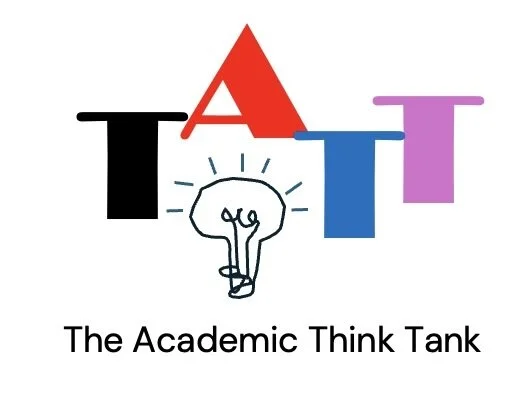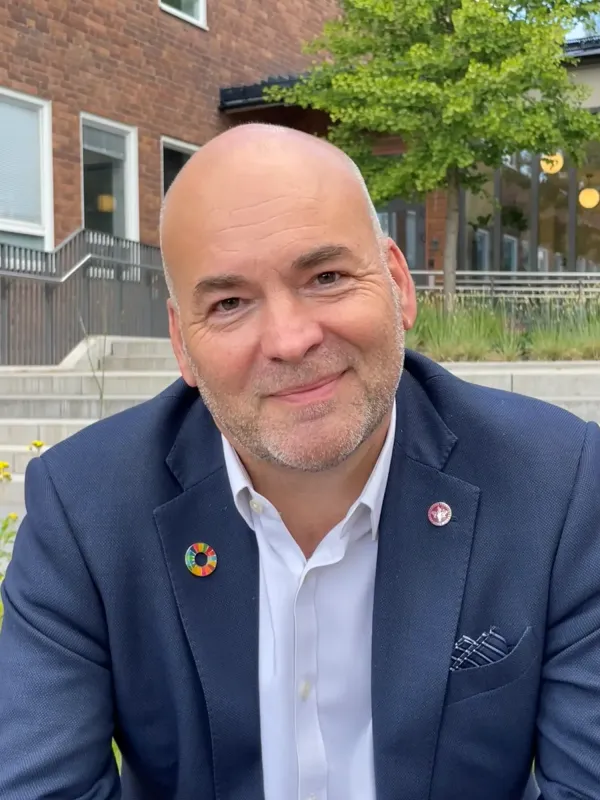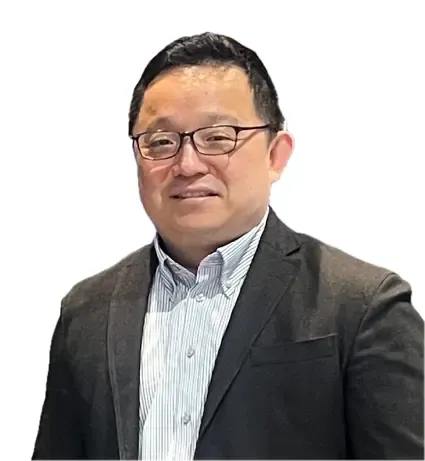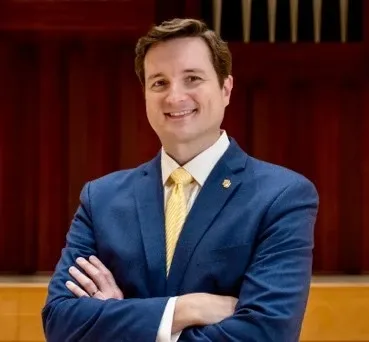The Academic Think Tank (TATT)
The Future of Academia 2.0 (#TATT)
The concept of TATT is to discuss the development of academia, to share global best practices, and to develop a consensus on the future of the university.

Why do we need TATT?
- Individual university development is often slowed by dominant prevailing traditions
- Universities throughout the world face similar challenges
- A consensus for innovative university development might empower facilitation of individual university development
- Appreciation of cultural similarities and differences should give a better global perspective
Posts will show up here
Summary from The Academic Think Tank (TATT) discussion held on April 30, 2025
The session focused on the persistent issue of bad behaviour within academic environments, particularly within PhD supervision and mentorship. A wide-ranging, global conversation featuring participants from Europe, North America, and Asia all affirmed the systemic nature of the problem. The discussion emphasized cultural issues, institutional inertia, lack of accountability and leadership failures, while exploring potential solutions such as leadership training, peer accountability and incentive systems.
Key Takeaways:
- Abuse in academia is systemic and persistent:
- Power asymmetries and perceived fear of retaliation prevent students and junior faculty from speaking out.
- Institutions often protect high-profile academics because of their ability to attract signficant research funding and reputation concerns.
- This has been the norm for years and is widespread within the academic world.
- Leadership gaps and lack of training:
- Faculty often move into supervisory or leadership roles without any formal training.
- Emotional intelligence and communication skills are rarely emphasized in academic progression.
- Zero tolerance vs. practical change:
- Complete elimination of abuse may be unrealistic. Instead, focus on creating respectful norms.
- Psychological safety, support systems and proactive mentoring are critical.
- Structural solutions:
- Karolinska Institutet’s ‘Green Light’ system: Before a faculty member can supervise a PhD student there must be approval from the department.
- Peer feedback systems and confidential reporting mechanisms were considered to be essential but currently underutilized.
- Students need better protection and support:
- Confidential, trusted support channels are vital for students experiencing abuse.
- Institutions need to move beyond ‘lip service’ and act on reports of misconduct.
- Recognition and incentives:
- Suggestions included ‘digital badges’ (currently used in Osaka University) or other means for positive reinforcement for good supervision practices – lift up good practices rather than focusing on fixing bad practices.
- Calls for shifting focus in professional promotion from only publication/grant funding metrics to holistic evaluation including quality of mentoring and workplace enironment.
- Cultural shifts must be both top-down and bottom-up:
- Cultural transformation must be driven by institutional leadership and supported by grassroots academic communities.
- Public and funding bodies should be lobbied to prioritize impact and academic well-being over raw output. Couple financial incentives to best practices.
- Next steps and output:
- Participants proposed creating blog articles, LinkedIn posts, and a website to share outcomes from TATT discussions.
A podcast titled ‘CIA Talks’ (Culture in Academia) was proposed to spotlight individual stories and insights.
Who was present:
Isabelle Köhler
Joey Barnett
Ferhan Sagin
Elena Hoffer
Clement Angkawidjaja
Thierry Mallevaey
Emmanuel Tsekleves
Bob Harris
Documents
Current TATT members
Bob Harris (Prof and Dean of doctoral education at Karolinska Institutet, Sweden).
Robert A Harris, D.Phil, B.Sc.Hons
Academic Vice President for Doctoral Education
Professor Robert Harris has been Academic Vice President for Doctoral Education since 2019 at Karolinska Institutet. Prof. Harris completed his undergraduate training at Portsmouth Polytechnic (UK) in 1987, his postgraduate training at University College London (UK) in 1991 and was named Professor of Immunotherapy in Neurological Diseases at KI in 2013.
Harris has previously served as Central Director of doctoral education at KI (2008-2018), working specifically with developing quality control for KI doctoral education through a variety of teaching and organisational activities, and also teaches widely at national and international institutions. He has also served as Director of doctoral education for the Department of Clinical Neuroscience (2005-2018). He was Chairperson of the International Advisory Council at KI from 2019-2023. In 2014 he was one of two recipients of the KI pedagogy prize, the first to receive it for a contribution to doctoral education. In 2024 he received the first ever FEBS Education Award. Prof. Harris was also President of ORPHEUS (2015-2022; Vice-President 2013-2015), The Organisation for PhD Education in Biomedicine and Health Sciences in the European System, which aims to stimulate quality assurance of PhD research and education and to strengthen career opportunities for PhD graduates.
Prof. Harris leads the research group Applied Immunology and Immunotherapy at the Centre for Molecular Medicine, a designated translational medicine centre at Karolinska Institutet. They conduct a strongly interconnected research programme aimed at using knowledge gained from projects in basic science to applications in a clinical setting, with focus on understanding why chronic inflammatory diseases of the nervous system occur, and then devise ways to prevent or treat them. Current focus is on Amyotrophic Lateral Sclerosis and Multiple Sclerosis. Prof. Harris has served as consultant to the Swedish biotechnology company Diamyd Medical AB with whom he has numerous patents and developed a vaccine for treatment of Type 1 diabetes to Phase III clinical trials.
Contact information
Prof Robert A Harris
Tel: +46 70 002 1803
Email: Robert.Harris@ki.se
Dr. Clement Angkawidjaja is an academic professional at The University of Osaka, currently serving as an Associate Professor in the Career Education Unit of the Center for Student Success Research and Practice, a role he assumed in August 2024. He earned his undergraduate degree in biotechnology from IPB University in Indonesia in 2002 and completed his master’s and Ph.D. degrees at The University of Osaka in 2004 and 2007, respectively.
Dr. Angkawidjaja’s career encompasses academic administration, teaching, and research. From 2020 to 2024, he was based at the Center for Global Initiatives, where he managed collaborative projects with the university’s Global Knowledge Partners and ASEAN Campus institutions. From 2010 to 2015 and again from 2017 to 2020, he taught biology and biochemistry at the International College’s Chemistry-Biology Combined Major Program, the first undergraduate program in English established under Japan’s Global 30 Project. Earlier in his career, he conducted research in biochemistry and structural biology and mentored graduate students in the Frontier Biotechnology English Program at the Graduate School of Engineering (2007–2010).
In addition to his academic roles, Dr. Angkawidjaja gained industry experience at a biologic drug discovery company in Sapporo (2016–2017), where he established and led a structural biology unit for fully human antibodies. He also managed business development activities, including patent renewals, out-licensing agreements, contract research projects, and international conference representation.
Outside of work, he enjoys hiking, scuba diving, hydroponics, and 3D modeling.
Contact Information
Dr. Clement Angkawidjaja
Email: clement.slics@osaka-u.ac.jp
Phone: +81-6-6105-6144
Thierry Mallevaey, Ph.D.
Associate Professor and Associate Chair for Graduate Studies, Department of Immunology, University of Toronto.
Dr. Thierry Mallevaey is Associate Professor in the Department of Immunology at the University of Toronto, where he currently serves as Associate Chair for Graduate Studies. He completed his undergraduate and graduate studies in Lille, France, earning his Ph.D. in Immunology in 2006. He then pursued postdoctoral training at the University of Colorado Denver, focusing on the biology of invariant natural killer T (iNKT) cells.
Since joining the University of Toronto faculty in 2010, Dr. Mallevaey has led a research program centered on the development, regulation, and function of unconventional T cell populations, including invariant Natural Killer T (iNKT) cells and mucosa-associated invariant T (MAIT) cells. His work explores how these innate-like lymphocytes respond to microbial cues and environmental stimuli, with implications for host defense, inflammatory diseases such as IBD, and cancer immunotherapy.
He has held two consecutive Tier 2 Canada Research Chair positions (2013–2023) and is currently funded by the Canadian Institutes of Health Research (CIHR), the Cancer Research Society, and other national and international programs. Dr. Mallevaey is a recipient of multiple mentorship and teaching awards, including the Gillian E. Wu Graduate Mentorship Award and the Temerty Faculty of Medicine Mid-Career Graduate Teaching Award. He also contributes to graduate education reform and curriculum development at the institutional level.
Contact information
Email: thierry.mallevaey@utoronto.ca
Website: mallevaeylab.ca
Eduardo Vilablanca (Prof at Karolinska Institutet, Sweden)
Elena Hoffer, PhD in Medical Science (Founder of Alma.Me LLC, USA)
Elena Hoffer holds a Bachelor’s and Master’s degree in Pharmaceutical Biotechnology from the University of Applied Sciences in Biberach, Germany, and earned her PhD in Medical Science from the Karolinska Institutet in Stockholm, Sweden.
Throughout her academic journey, Elena has been deeply passionate about improving lives and making a meaningful impact. During her PhD, she actively contributed to initiatives such as ‘Women in Science’ and ‘Karolinska Institutet Clinicum Connections’ (KICCs), and she organized career development sessions as part of ‘PhD Careers Beyond Academia’ at Karolinska Institutet in collaboration with the Career Service.
Seeing the impact of the career sessions on early career researchers, she was dedicated to providing tools and knowledge to early career researchers who often feel lost, overwhelmed, and uncertain about their future careers. She co-founded Alma.me, a startup focused on equipping early career researchers with the resources they need to land fulfilling careers beyond academia. To achieve her mission, Alma.me partners with both individuals and universities to provide scalable career development solutions.
Contact information
Email: elena@alma.me
Joey Barnett (Prof emeritus, Vanderbilt University, USA)
Ferhan Sağın, M.D., Ph.D. (Prof. of Medical Biochemistry; Chair of the FEBS Education and Training Committee; Congress Chair, FEBS 2025 Istanbul)
Prof. Ferhan Sağın received her M.D. and Ph.D. degrees from Ege University, Türkiye. After 15 years of active research in clinical biochemistry and molecular biology, she shifted her primary focus to education and the training of young scientists. She has been a long-standing contributor to international educational initiatives, including serving on the Executive Board of the International Association of Medical Science Educators (IAMSE) from 2009 to 2011, and participating as a presenter and workshop organizer in over twenty IAMSE and Asia Pacific Medical Education Conferences (APMEC).
Since 2019, Prof. Sağın has chaired the Education and Training Committee of the Federation of European Biochemical Societies (FEBS), now serving her third term. In this role, she leads efforts to improve and harmonize molecular life sciences education across Europe and internationally. She is also a member of the IUBMB Education Committee and co-chair of the Turkish Biochemical Society (TBS) since 2015, where she also leads the TBS Academy.
Prof. Sağın is a passionate advocate for active and inclusive learning. For over two decades, she has developed curriculum frameworks, mentored early-career researchers, and championed safe and engaging learning environments. She has coordinated numerous national and international symposia and workshops focusing on undergraduate and doctoral education, educational innovation, and student-centered pedagogy. Her core mission is to bridge the gap between biomedical research and educational practice, particularly by enhancing capacity in underrepresented regions.
Contact Information
Prof. Ferhan Sağın
Email: ferhan.sagin@gmail.com
Isabelle Kohler (Assistant Prof at VU Amsterdam, Holland)
Professor Emmanuel Tsekleves
Emmanuel Tsekleves is Professor in Global Health Design Innovation and Director of the Future Cities Research Institute at Lancaster University. Based between the UK and Switzerland, Emmanuel's journey from a struggling PhD student to academic leader embodies his deep commitment to transforming academic culture. Twenty years ago, overwhelmed by PhD pressures and ready to quit, Emmanuel made a promise: "If I somehow make it through this maze, I'll help others navigate what I'm struggling with right now." This promise became his mission.
Guided by transformative mentors who showed him academia's hidden rules, Emmanuel achieved full professorship and research center directorship by 40. Today, he has secured over £6.5 million in research funding, published 130+ articles, and supervised 12 PhD students to completion, supervising 12 more. His pioneering work in global health design has reached over 30 million people through global media coverage.
But Emmanuel's proudest achievement is keeping that pre-PhD promise. Through his PhDtoProf initiative, he has guided many researchers toward academic career success, with hundreds securing positions at top universities across 15+ countries. His weekly newsletter reaches 8,500+ academics worldwide, offering the insider knowledge universities don't teach.
As Executive Board Member (Treasurer) of the Design Research Society and extensive UKRI panel member, Emmanuel brings unique dual perspectives to TATT: the struggling student who nearly quit and the professor who now makes hiring decisions. He understands that academic culture's problems require both individual strategies and systemic change.
Emmanuel's international collaborations span Asia-Pacific, Africa, and Latin America, bringing global insights to academic transformation. His work perfectly aligns with TATT's mission to create positive change in academic environments through evidence-based dialogue and cross-cultural understanding.
Contact information
Email: hello@phdtoprof.com
Gundula Bosch (Dr. and Director, R3 Center for Innovation in Science Education, Johns Hopkins, USA)
Kevin Sanders is a higher education leader, certified leadership coach, and current dean of the School of Music at Baylor University. With more than 20 years of experience spanning small public colleges to large R1 institutions, he brings a strategic, people-centered approach to academic leadership. Prior to his role at Baylor, Dr. Sanders served as director of the Rudi E. Scheidt School of Music at the University of Memphis, where he led the school through a period of transformational growth. His tenure included the planning and grand opening of a $40 million performing arts center, record-setting student enrollment, and a significant expansion of faculty diversity.
Throughout his career, Dr. Sanders has been driven by a core belief: effective leadership creates the conditions for others to thrive. At Memphis, this meant more than overseeing operations—it meant reimagining what a 21st-century music school could be. He led efforts to broaden community access through the Scheidt Music Extension, improved student support by launching a centralized Student Success Center, and worked closely with faculty to modernize the curriculum. These initiatives weren’t just structural; they were cultural—designed to reflect a more inclusive, student-centered, and outward-facing mission. Under his leadership, the school established international partnerships, introduced new degree programs including music therapy, and significantly expanded its summer offerings, resulting in the highest enrollment in school history.
Dr. Sanders approaches leadership much like a musician approaches performance: with discipline, creativity, and a commitment to collaboration. A classically trained tubist, he has performed across five continents with leading orchestras—experiences that deeply inform his understanding of teamwork and excellence. Today, he brings that same mindset to his work as a certified leadership coach, partnering with academic leaders to navigate complexity, lead change, and build resilient, purpose-driven teams. His coaching combines strategic insight with systems thinking, helping leaders break through organizational barriers and align their daily work with their values and vision.
Dr. Sanders is committed to shaping the future of higher education by investing in the people who lead it. Whether guiding institutions through transitions or coaching individual leaders toward greater clarity and impact, his work is rooted in the belief that sustainable change starts with human connection and intentional design. He holds degrees from Indiana University, the Juilliard School, and Michigan State University, along with executive education credentials from Cornell and Harvard.
Contact Information
Kevin Sanders, D.M.A.
Dean of the School of Music at Baylor University
hello@kevinsanders.me



